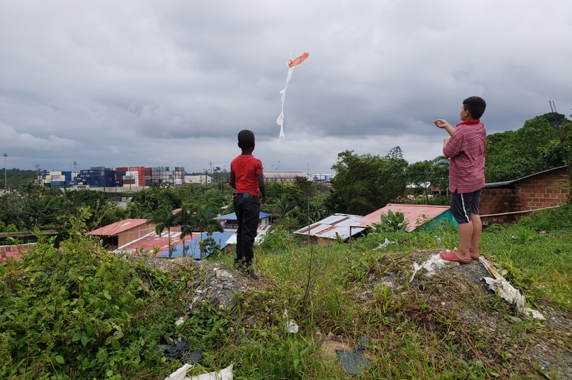by Alexandra Hernandez
In solidarity with Lazos de Dignidad, defenders of human rights recently threatened by paramilitary forces for defending the rights of ex-combatants.
In light of the recent alarming events that threaten, once again, the human rights of the people of Colombia and Latin America, the National Lawyers Guild sent a delegation to Colombia in August 2019. Aiming to establish a solidarity network between human rights defenders in Colombia and the US, the delegation met with key human rights groups, victims’ organizations, and social leaders in conflict-stricken areas.
Ever since the signing of the 2016 Peace Agreement with FARC-EP (Fuerzas Armadas Revolucionarias de Colombia), the transition into “peace” has been tainted by not only systematic attacks against social leaders, human rights defenders, and demobilized ex-combatants, but also the re-victimization of Indigenous and Black communities and other groups who seek reinstitution of land rights and governmental protection. These human rights concerns are now revealing the five decades of struggle for economic and political control at the hands of the far-right political elites, paramilitaries, and guerillas over regions of abundant natural resources. Hence, the delegation continued its solidarity work in Latin America, this occasion in Colombia, due to its geopolitical importance, the continuation of an “extractionist” far-right government, and the continuous political and military influence of the U.S. Thanks to the visits to different territories: Bogota, Buenaventura, Cali, and La Balza in Northern Cauca — the delegation witnessed the daily struggle of these communities to find the voice subdued by the violence and systematic attacks that aim to marginalize and take control over the most vulnerable populations of the country.
The delegation started its work in Bogota, meeting with human rights defenders, victims’ organizations, and with the Jurisdiction for Peace (JEP), the mechanism of transitional and restorative justice established to deal with the transition process with FARC. There, the overwhelming evidence provided by all of these organizations highlighted the shortcomings of the Colombian government in terms of peace. Human rights lawyers and defenders, along with their families, are constantly under threat of violence or death for defending ex-combatants and victims; members of victims’ organizations try to work around a “Victim’s Law” that legitimized the dispossession of their land and does not recognize their losses and trauma; and lastly, the only independent mechanism of transitional justice, the JEP, proves insufficient as it is constantly limited by a government that does not believe in the peace process. Then, the visits to Buenaventura, Cali, and Cauca proved that the interest of the Colombian government is not restorative justice. Buenaventura and Cauca are both great examples of how being a geostrategic territory is the violent burden that Black and Indigenous communities there have to live with. With plans to make Buenaventura “a seaport with no people” and the Cauca region a territory for megaprojects such as hydroelectric industry, extraction of minerals, monoculture plantations, and drug trafficking, these vulnerable communities are now facing the dangers of a conflict that is changing its dynamic to defend the interests of capitalist and political elites. Thus, in efforts to create an organized process of visualization, these organizations confided in our delegation how imperative it is to establish an international support network. The people of Colombia need a helping hand that will assist in the fighting against these strategies of displacement and social control that aim to have these communities leave their territory to “others”.
Photo: Children fly a kite in Buenaventura where the delegation visited an Afro-Colombian community fighting to defend their land and rights to basic services like water, energy, and housing.

